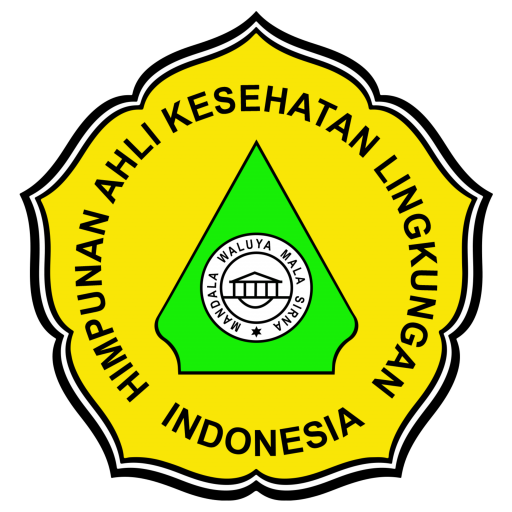ENGINEERING APPLICATION OF WASTE TURNING TOOLS TO SUPPORT WASTE MANAGEMENT IN CAMPUS 7 HEALTH POLYTECHNIC OF MINISTRY OF HEALTH SEMARANG
Abstract
Introduction: The government of banyumas district by decree number: 660. 7776/2018 concerning the management of the waste in banyumas district, in which the President's decree strongly recommends the closing of the TPA on January 2, 2019 and urges the management of waste through non-governmental groups (KSM) in trash management 3r (main, reuse and recycling). The application of 3r activities in communities is still hampered largely by the lack of awareness of people sorting waste. The world health ministry of semarang, which has an open land of 2.3 ha (2.3 ha), has an average of 4 m3/ week organic waste. Thus selecting a comprehensive waste management by using a 10-panted run way method, so each week it is used to invert waste from tub one to tub the next. Based on the above description, the formula of the problem in this study is knowing the effectiveness of the waste turning engineering tools in supporting the waste processing process. Methods: Research and Development is a research method that uses to obtain or develop products and test the effectiveness of these products. The turning tool is designed to compare the effectiveness of the waste turning process before and after using the tool. This research was conducted at a waste processing place (composter) at Campus 7 Poltekkes Kemenkes Semarang. The population in this study were all of the campus residents' solid waste generation. The sample of this study was waste in each tub (from tub 1 to 10) compost processing volume of 0.5-4 m3 / week. This study used tables analysis and the average value calculated from the results of sieving the waste. Research and discussion: The design and assembly of a waste turning tool is appropriate and can support the composting process of waste at Campus 7 Purwokerto, Health polytechnic of Ministry of Health Semarang. The volume of waste in basins 1 to 10 is on average around 0.5-4 m3 / week, in each tub per week there is a decrease in waste by an average of about 8-9%, so that starting from basin 1 with a volume of waste 4 m3 / week decreasing in the basin 10 to 0.5 m3 / week. The comparison of manual waste reversal using a machine is as follows:
Turning over manual waste takes about 5-7.5 minutes per basin with 4 workers, so it takes 50-75 minutes to reverse 10 basins. Turning the trash with a machine takes about 45-50 seconds with
Conclusion: A waste turning tool has been proven effective to assist and facilitate the process of waste reversal for the decomposition process in the composting basin at the campus 7 composting place.
Keywords
Full Text:
PDFReferences
Anonim. Dasar dasar Sistem Pengelolaan Persampahan pplp-dinciptakaru.jatengprov.go.id accessed January 2018.
Bandura, Albert. 1997. SELF-EFFICACY: The Exercise of Control. Stanford University. New York. W.H. Freeman and Company.
Creswell, J.W. 1994. Research Design Qualitative and Quantitative Approaches. Sage Publication : London.
Creswell, J.W and Dana L Miller. 2000. Determining Validity in Qualitative Inquiry. Theory Into Practice Vol. 39, No. 3, Getting Good Qualitative Data to Improve Educational Practice (Summer, 2000), pp. 124-130.
Enri Damanhuri dan Tri Padmi. 2010. Diktat Pengelolaan Sampah. ITB : Bandung.
Hill, Tosi., Caroll, SJ. 1997. Organizational Theory and management : A Macro Approach. John Willey and Sons Inc : New York.
Jenna R.Jambeck, Roland Geyer, Chris Wilcox, Theodore R.Sieger, Miriam Perryman, Anthony Andrady, Ramani Narayan, Kara Lavender Law. 2015. Plastic waste inputs from land into the ocean. Sciencemag 13 February 2015 Vol 374 Issue 6223.
Okut Ookumu, J. And Nyenje, R. 2011. Municipal Solid Waste Management Under Decentralization in Uganda. Habitat International Volume 35, Issue 4 , October 2011, Pages 537-543.
Peraturan Pemerintah Republik Indonesia, nomor 17 Tahun 2010, tentang Pengelolaan dan Penyelenggaraan Pendidikan. Jakarta.
Pemerintah Kota Yogyakarta, 2014, Profil Kota Yogyakarta, Yogyakarta : Pemkot Yogyakarta.
Siti Marwati. 2013. Pengelolaan Sampah Mandiri Berbasis Masyarakat. Jurusan Pendidikan Kimia FMIPA UNY.
Slamet Santoso SP. 2010. Dampak Negatif Sampah Terhadap Lingkungan dan Upaya Mengatasinya. Fakultas Biologi UNSOED.
Tobing, I. S. (2005). Dampak Sampah Terhadap Kesehatan Lingkungan dan Manusia. Jakarta: Fakultas Biologi Universitas Nasional, 1–9.
Undang-Undang Nomor 18 Tahun 2008 Tentang Pengelolaan Sampah.
Willie Susuki, Air Handono Ramelan dan Dwi Aries Himawanto. 2016. Penanganan Sampah Berdasarkan Karakteristik Sampah di Kota Surakarta. FKIP UNS.
Yin, R. 1994. Case Studi research : Design and methods (2nd ed). Sage Publications, Thousand Oaks, CA
DOI: https://doi.org/10.31983/keslingmas.v39i4.6579
Article Metrics
Refbacks
- There are currently no refbacks.

Buletin Keslingmas (p-ISSN : 0215-742X, e-ISSN : 2655-8033 ), diterbitkan oleh Jurusan Kesehatan Lingkungan Politeknik Kesehatan Kemenkes Semarang Jl Raya Baturaden Km. 12 Purwokerto, Jawa Tengah, Indonesia. Telp/Fax. 0281-681709
Email : buletinkeslingmas@poltekkes-smg.ac.id
Buletin Keslingmas is licensed under a Creative Commons Attribution 4.0 International License

.png)
.png)
.png)









